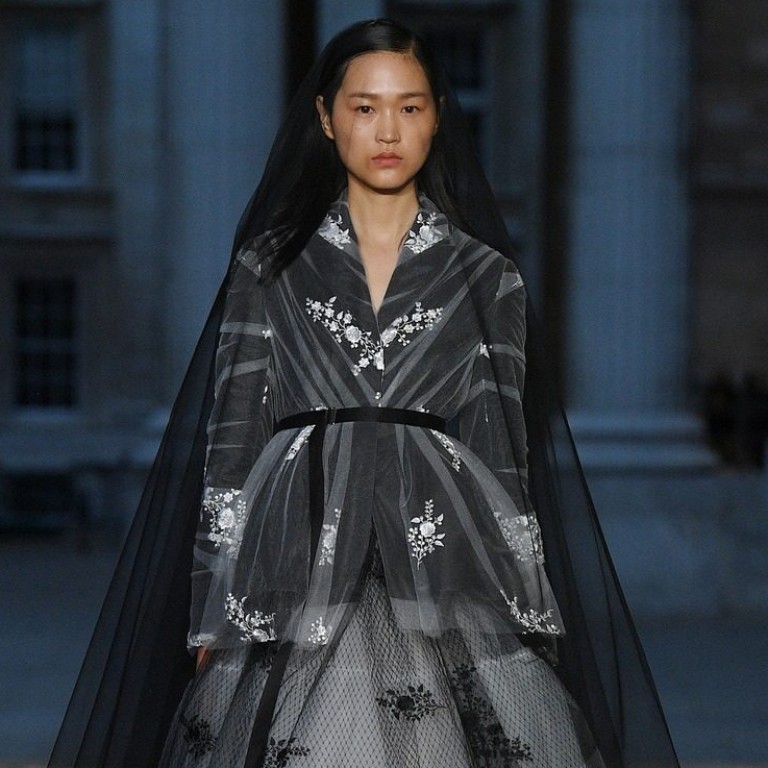
Queen Elizabeth’s death loomed large over London Fashion Week – black veils, cancelled parties and, on the day of her funeral, no shows
- The September 2022 edition of London Fashion Week was supposed to be a comeback of sorts after years of digital events. Then Queen Elizabeth died
- Despite talk that the event would be cancelled, it continued – with many designers paying homage to a monarch who was very connected to British fashion
Two years ago Caroline Rush, chief executive of the British Fashion Council, and her team came up with a contingency plan in case Queen Elizabeth died during London Fashion Week, the twice-yearly event that displays the best in British style.
“It was going to be a fun, citywide activation and have the consumers involved. The city was going to absolutely go off and we were getting ready for these long days of amazing creativity and then we started hearing news that the queen wasn’t well.”
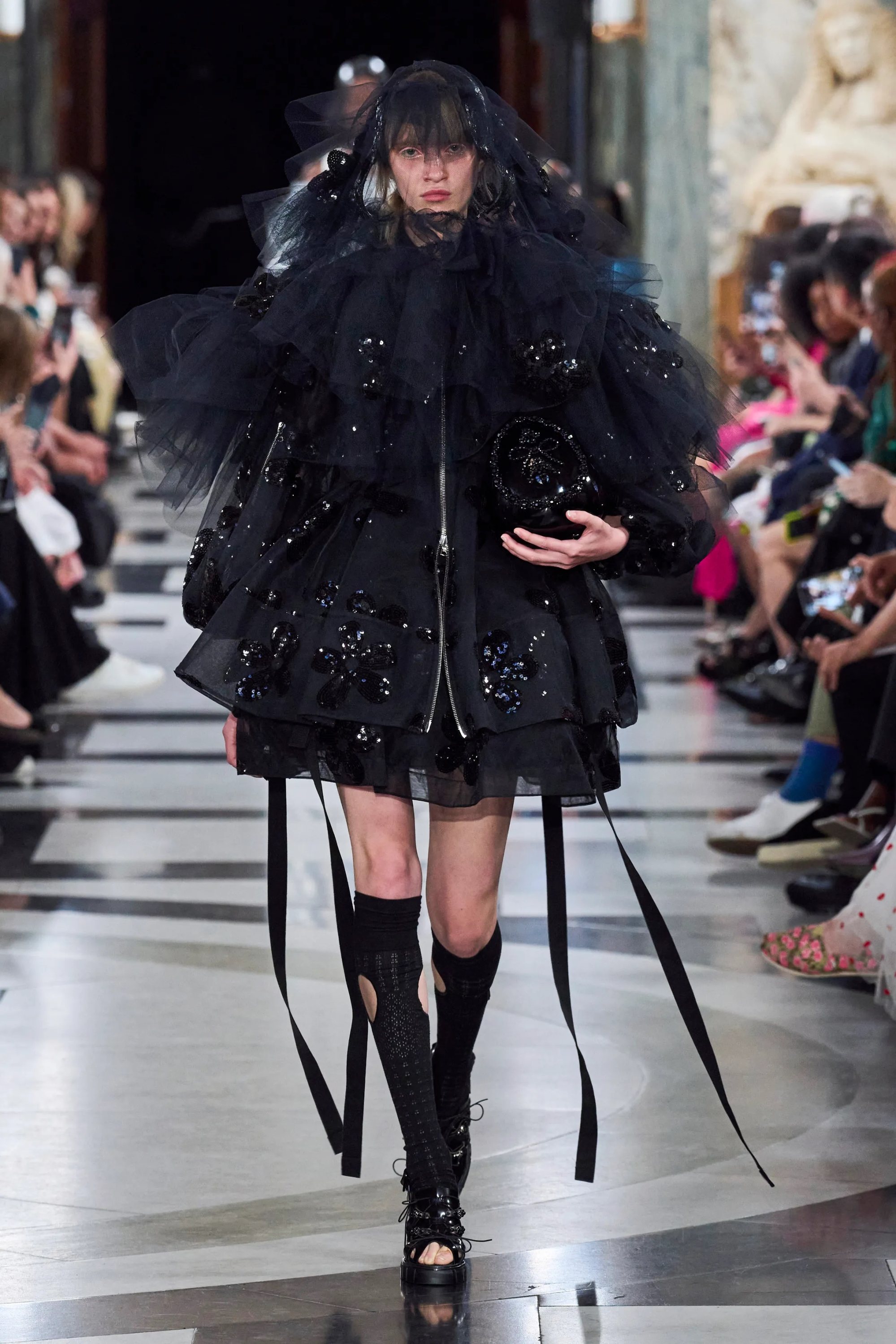
As soon as Burberry, the United Kingdom’s top luxury brand, announced that it would cancel its show, there were rumours that the whole event would be scrapped, but that would have been a very painful outcome, explains Rush.
“It’s a historic moment and we had to do things in a different way,” she says. “We just felt for the designers who put in a huge amount of money and time on their shows. This is their global marketing platform to talk to international media, retailers and get consumers excited, and it’s a huge moment for their growth and for new designers.”
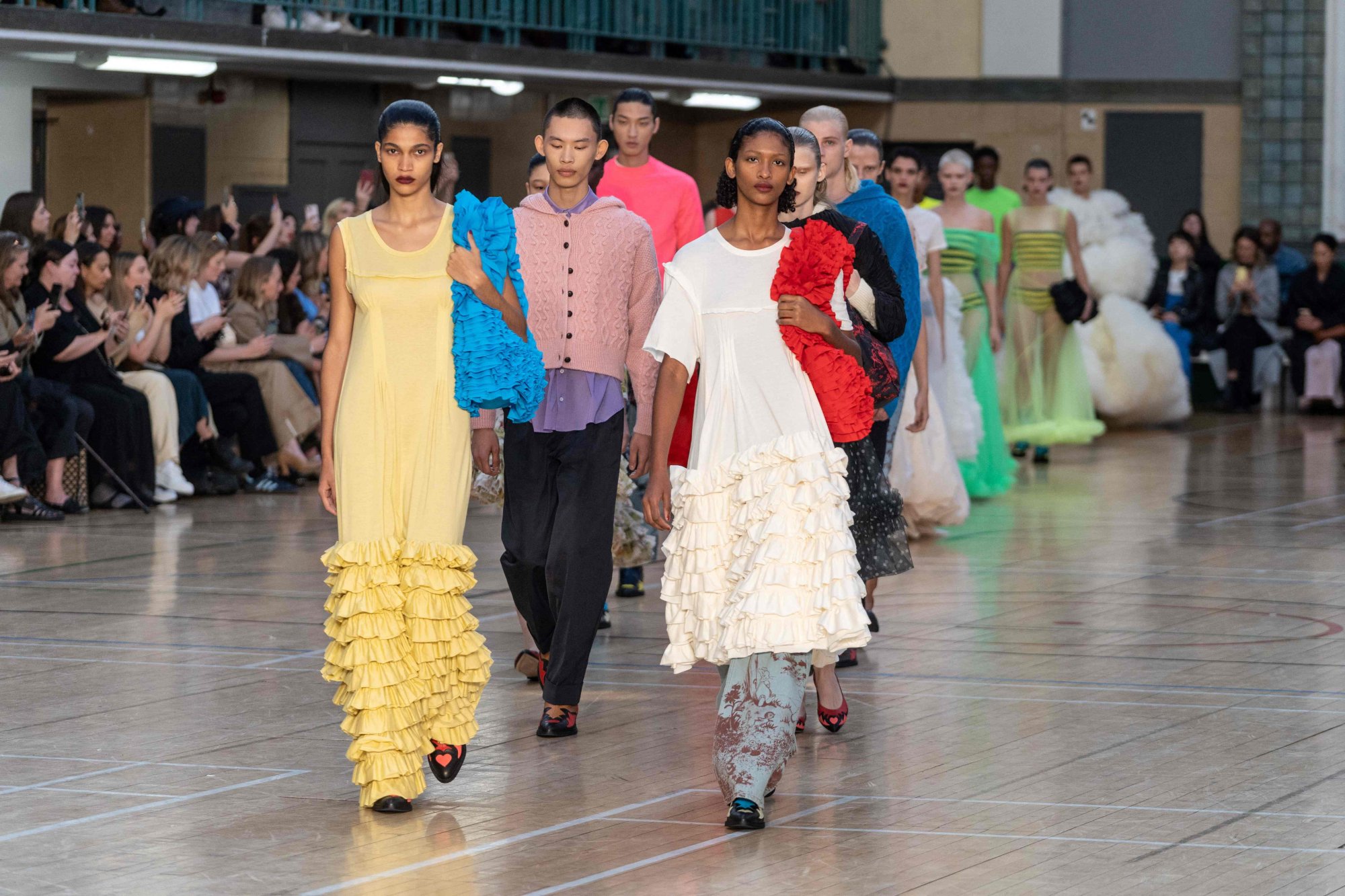
While a company like Burberry can absorb the loss of cancelling or postponing a show, that is not an option for most of the labels that present at London Fashion Week – independent brands that do not have the resources of big luxury companies and for which holding a show is a major investment.
“It was up to every business to decide what they wanted to do and some might have felt it wasn’t appropriate [to go ahead], but the immediate emotion right after something happens can quickly change,” says Rush.
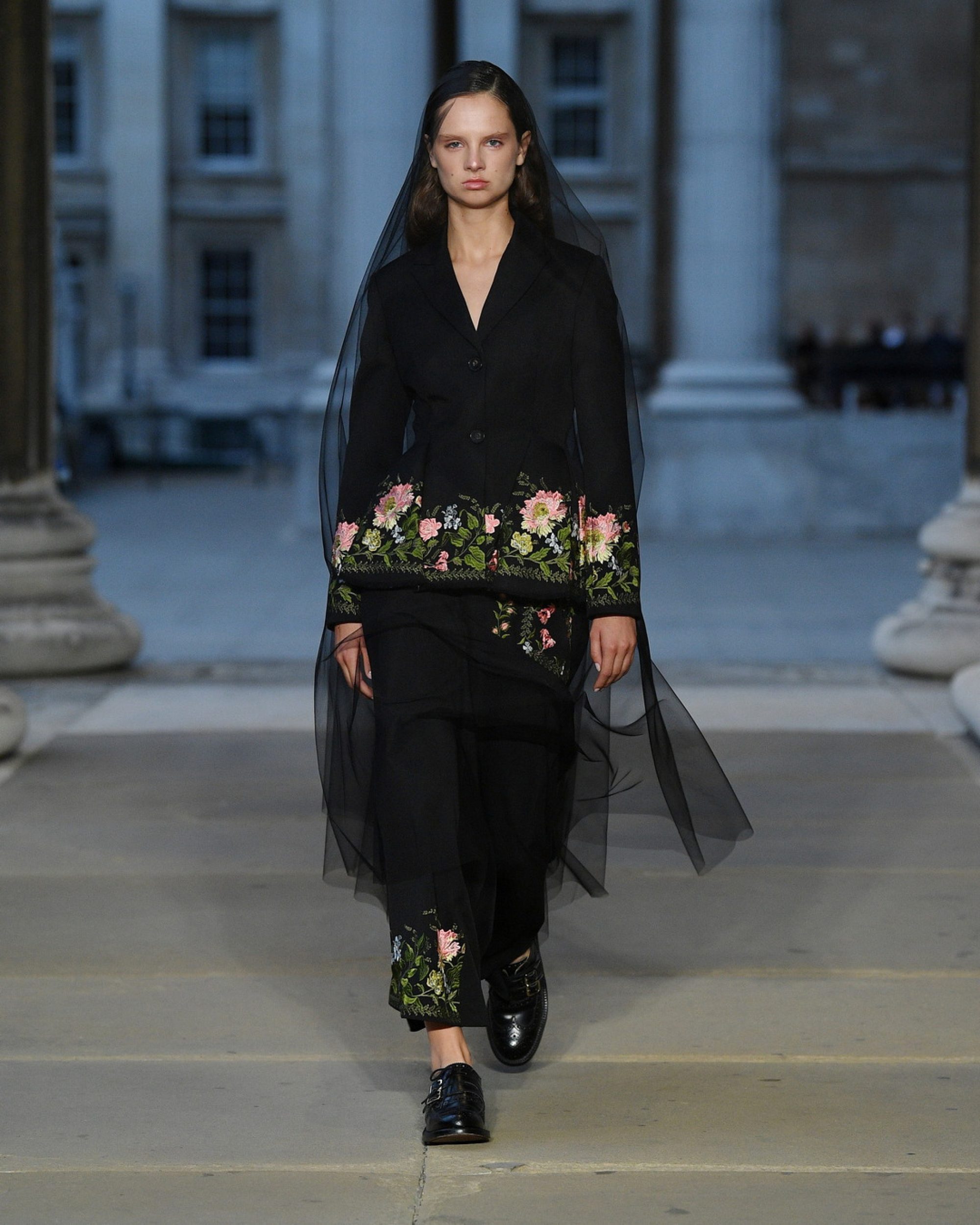
In the end, most shows went ahead, but parties and ancillary events were cancelled and no shows were scheduled on the day of the funeral.
The spectre of the queen’s death loomed large throughout the proceedings, with many designers paying homage to the longest reigning monarch the United Kingdom has seen (black mourning veils are unlikely to become a trend but were a tasteful way to celebrate the queen, as some designers did).
“Having been a monarch for so long she was just the embodiment of Britishness, that heritage and also the new and projecting it into something you show to the world and always doing that with great style and grace,” says Rush.
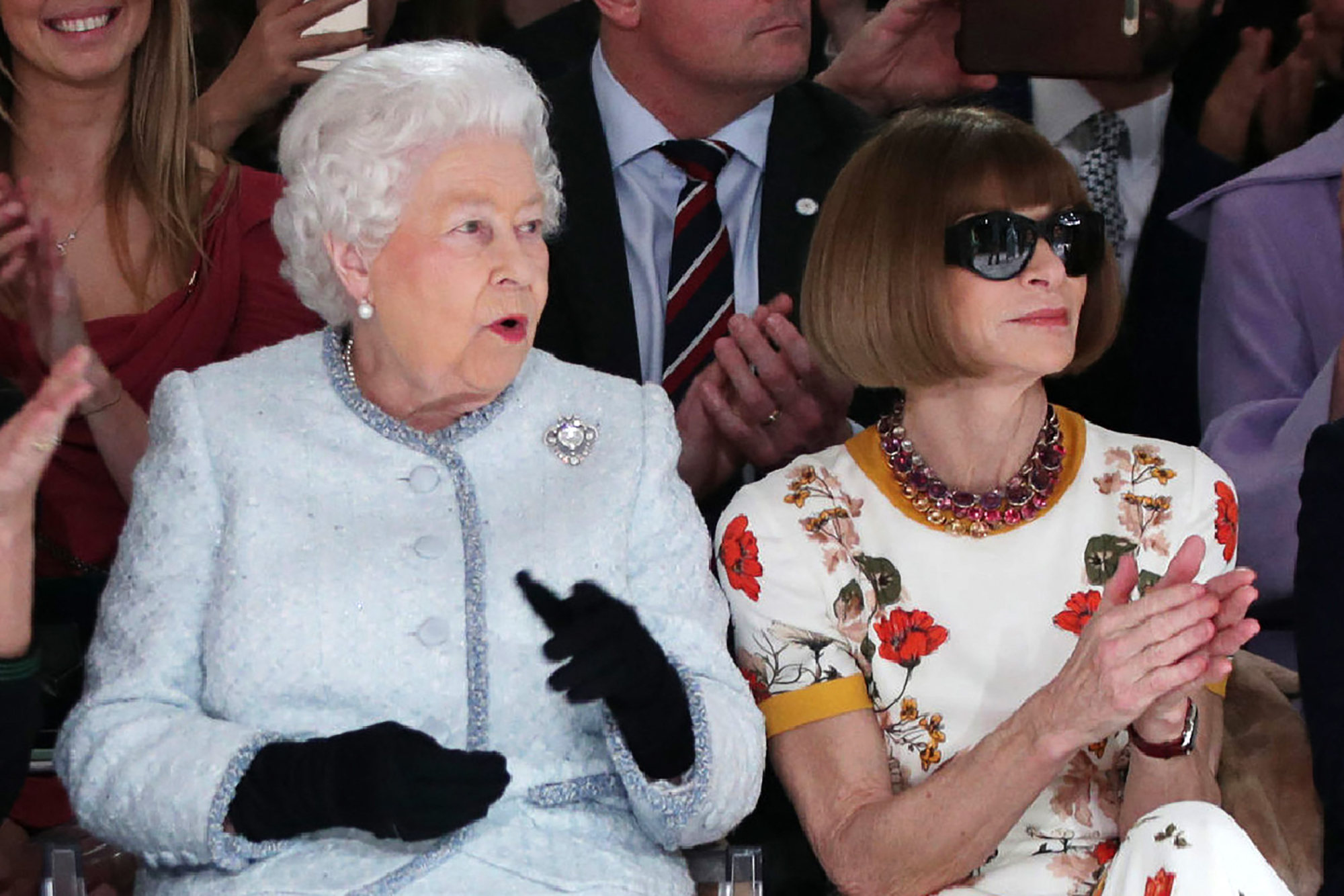
While this year’s fashion week was subdued, Rush believes firmly in the importance of real-life events and runway shows, which some had assumed would become less relevant after the shift online during the pandemic, when digital shows became the norm.
“I’ve been in this job for 13 years and since I started people have been telling me that fashion week is over,” says Rush. “It’s not, because it has such a purpose and is a convening for the industry and a moment for designers to come together and show their collections to the world.
“It’s also the most sustainable way of doing it instead of having retailers and editors running around the world at different times, because everyone is coming and seeing everyone at the same time. The conversations and insights you get in those days … it’s a crucial platform.”
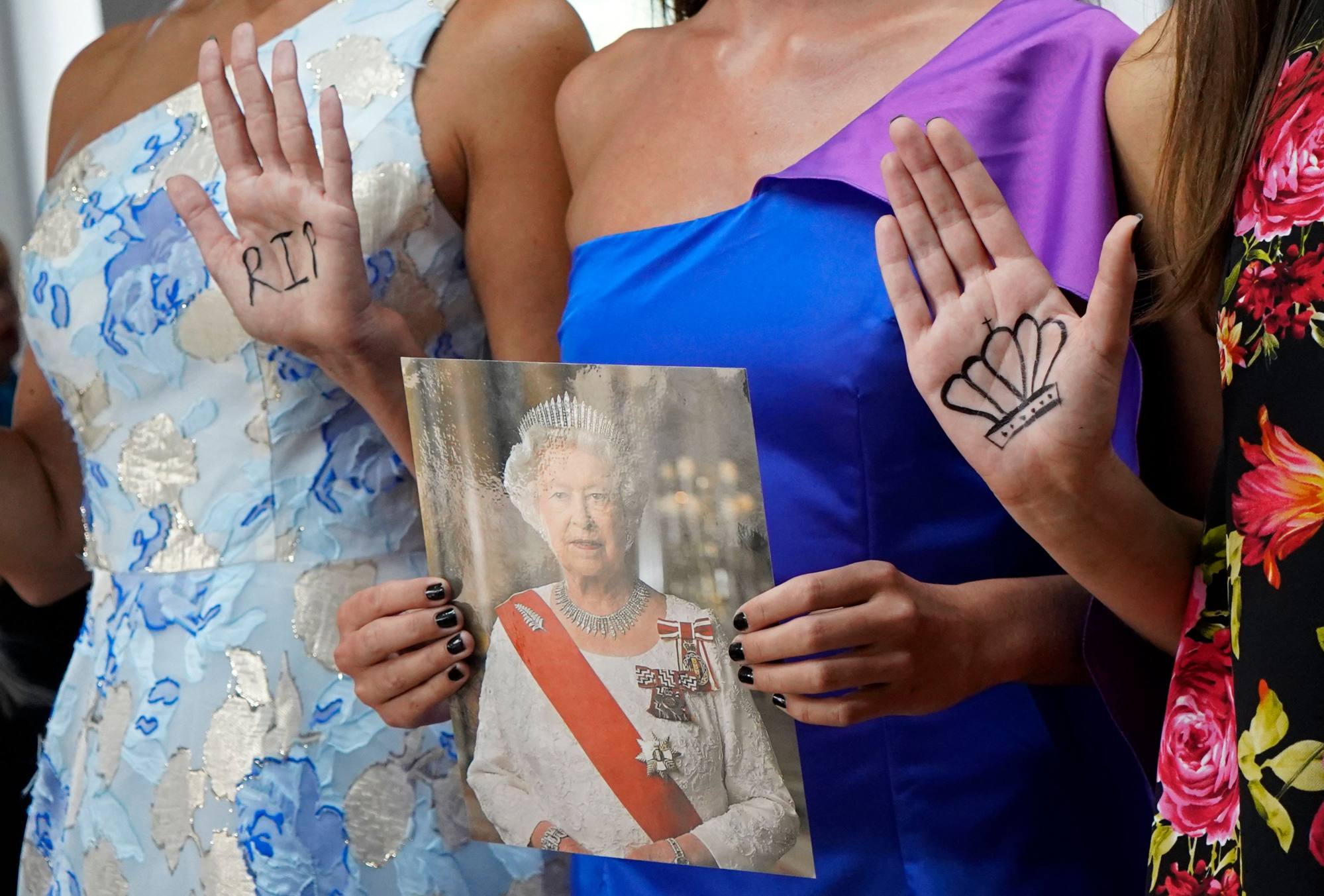
Digital tools like live streaming, however, are still important for those who cannot attend in real life – not just consumers, but also editors, buyers and influencers from China, which is still imposing pandemic-related restrictions and travel bans, therefore keeping the very important Chinese luxury shopper away from hubs like London.
Rush explains that the recent strength of the dollar and increased influx of American tourists have helped, but still do not make up for all the Chinese tourists, students and business travellers who used to come to London and splurge on designer goods.
“When it does open up, there’s going to be a real welcoming to Chinese consumers,” she says. “It’s not just fashion but also hospitality and not just a capital city like London but the whole tourism industry of a country.”
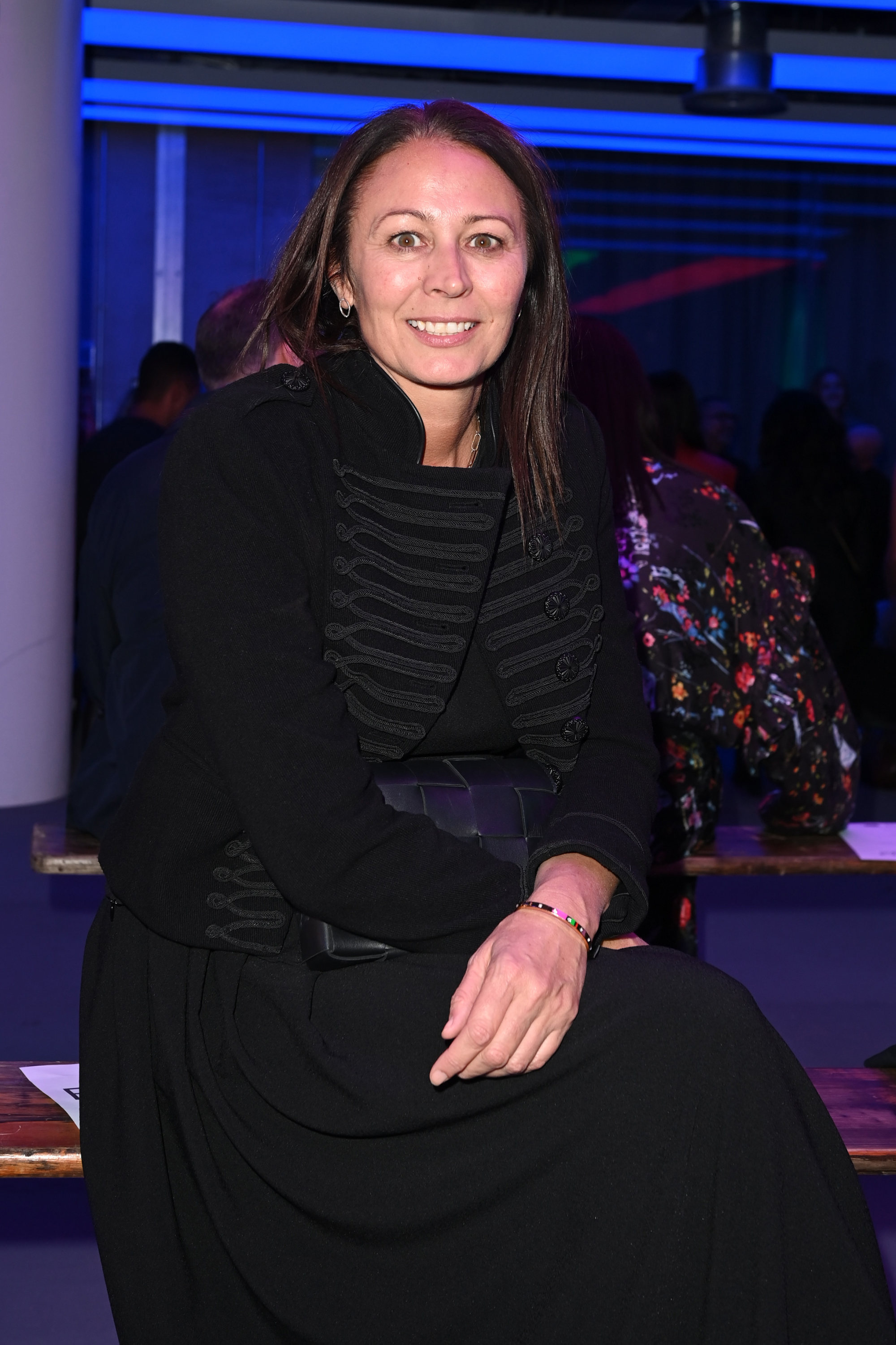
London has long been a hotbed for young fashion talent, and the British Fashion Council has made it its mission to promote this to the world, thus operating a bit differently from similar entities in Milan and Paris, where luxury powerhouses reign supreme.
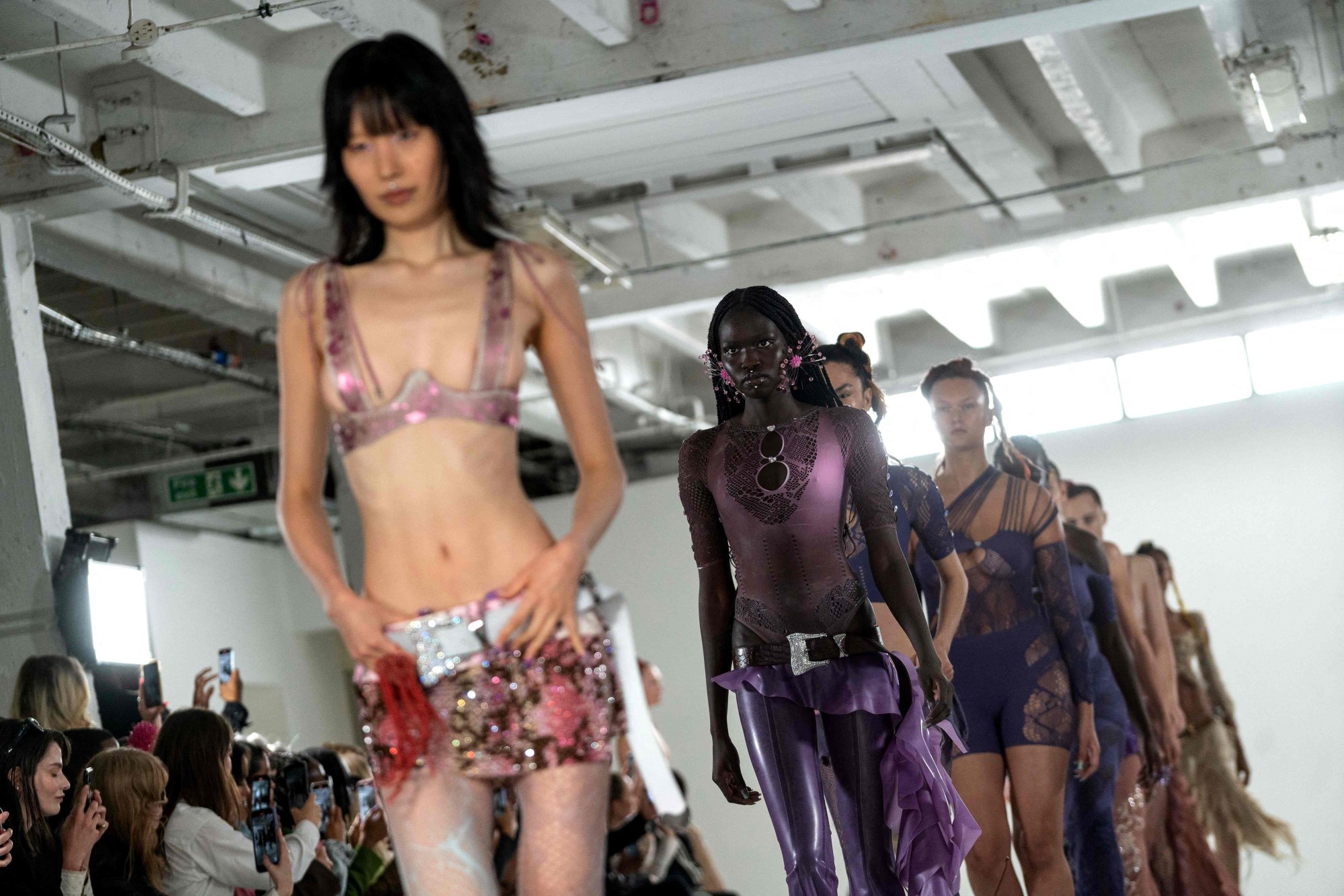
“Our industry thrives on what feels like an underground movement coming out of London that helps these businesses build their DNA and become part of the mainstream,” says Rush.
“The interesting thing is that these young designers have been pioneers in sustainability and inclusivity, and now they advise big brands. They are like the R&D of sustainability and are now challenging the thinking of big brands.
“That has brought the bigger brands closer to London talent.”
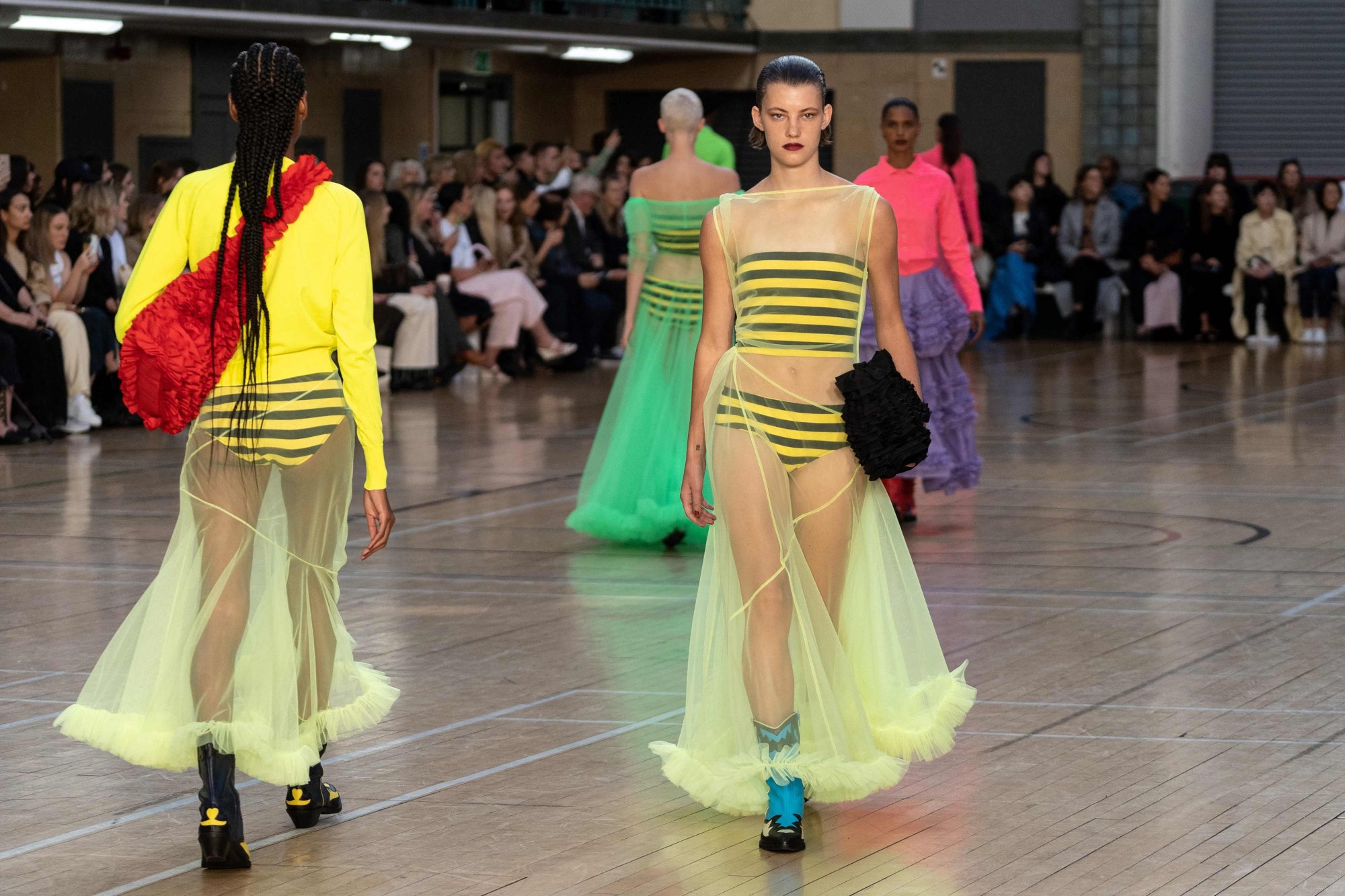
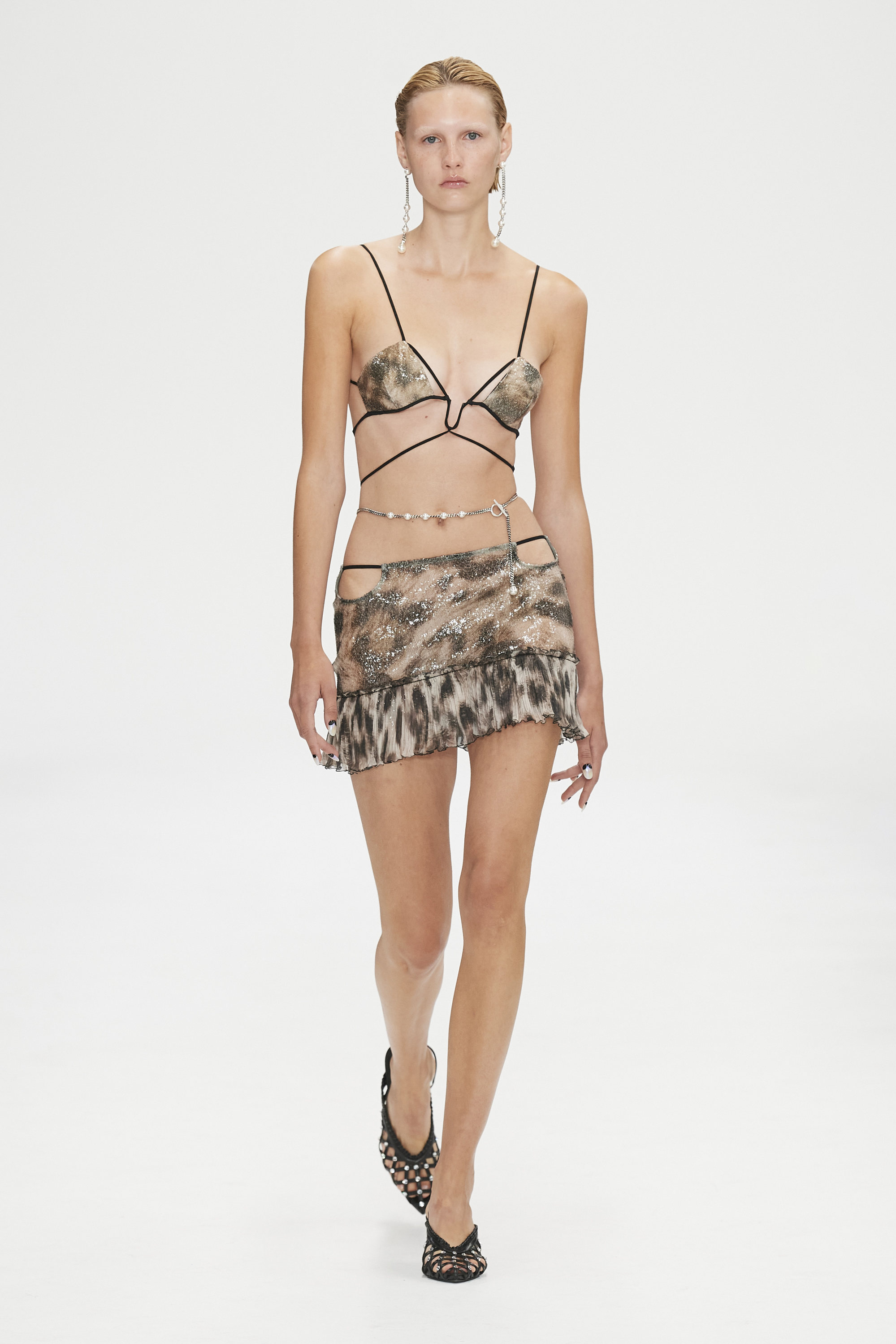
Talent was on full display during what ended up being more of a London Fashion Weekend than a full week.

